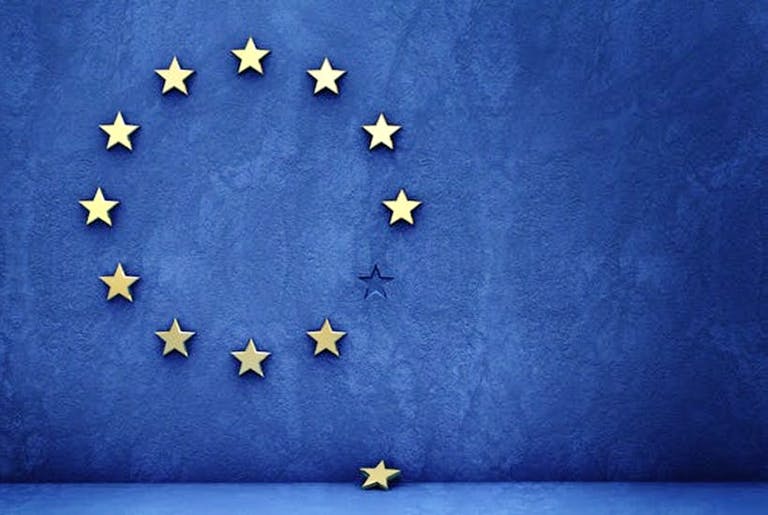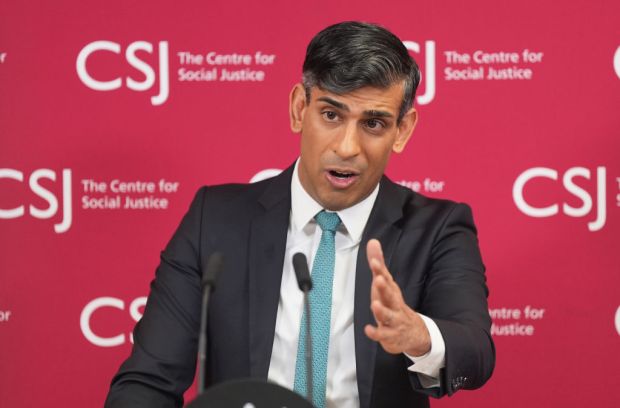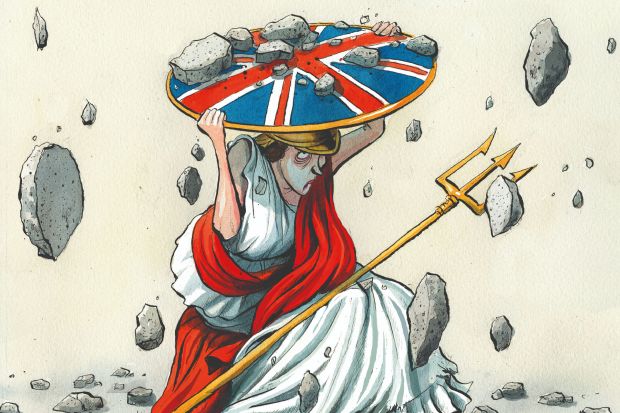A creeping sense of Bregret is taking hold in Britain. A majority of Brits now say that the vote for Britain leaving the EU was a mistake. Only one in five think Brexit is going well – and seven in ten say that it has gone as badly, or worse, than they feared.
In the past year alone, there has been a ten-point swing toward rejoining the EU. This is leading to a shift in how the major parties are positioning themselves on the question of Europe. With Labour enjoying a comfortable lead in the polls and appearing to be on course to win the next election, might Keir Starmer’s party pivot fully to calling for a return to EU membership? That seems unlikely, at least in the short term. But, in the aftermath of a Labour victory in 2024, the party might well shift to a more explicitly pro-EU position, pointing to changes in public opinion as the justification for doing so.
Labour is right to recognise that the mood is changing – and not simply because some of Britain’s Leave voters have morphed into Rejoiners. Indeed, the number of actual converts is modest: fewer than one in five Brexiteers admit to buyer’s remorse. Far more significant is the fact that people who chose not to vote in the original referendum – and young people who were too young to vote in 2016 but are now flooding into the electorate – are heavily against Brexit. Of the 18-to-24-year-olds of Generation Z, who came of age during the turmoil marked by the rise of Donald Trump in the US and Boris Johnson in the UK, as well as the prolonged and polarising gridlock over Brexit in Parliament, no less than 79 per cent say they would vote to rejoin the EU.
The Brexit referendum and its aftermath was supposed to deal with these tensions in British politics
These demographic pressures, in other words, are going to increasingly impose themselves on domestic party politics. They are already being coupled by a marked shift in how the British people are assessing the costs and benefits of the Brexit project. One big problem for Brexiteers is how their project, rightly or wrongly, is now strongly associated in the public mindset with an array of major crises.
The vote for Brexit was powered by a belief that leaving the EU would enable Britain to reclaim sovereignty from Brussels, lower immigration, and, as the Leave campaign slogan promised, ‘Take back control’ of the country’s borders and security. Yet since 2016, Brexit has become a backdrop to the post-pandemic economic malaise of low growth, rampant inflation and cost-of-living crisis. Instead of paving the way for a dynamic high-growth, low-tax economy – in the most boosterish version promised by Leave’s promoters, Britain reborn as ‘Davos-on-Thames’ – Brexit is now associated by many with the opposite: a low-growth, high-tax economy.
There is no doubt that this very bleak economic context is having a negative impact on support for Brexit. As recent studies point out, voters have not, in the main, become more positive about what they see as the key benefits of Brexit, such as Britain’s success in developing its own Covid-19-vaccine program, and its ability to control its own affairs and respond decisively to the Ukraine crisis. But they have become much gloomier about what they see as its drawbacks. Brits are more convinced that Brexit is damaging their wages, the country’s economy, and the National Health Service. People who perceive that the country’s economy is getting weaker, rather than stronger, are more likely than they were before the cost-of-living crisis, to think that Brexit is also not going very well.
The Conservative party’s disastrous experiment with ‘Trussonomics’ is also playing into this perception. While Truss’s neo-Thatcherite ‘Liberal Leaver’ vision of Brexit Britain – boosting bonuses for bankers, deregulating financial services, slashing taxes for top earners, and liberalising immigration from outside Europe – united Tory elites and their donors, it simply did not appeal to most ordinary Brexit voters, as anybody who has looked at the data would know.
Few of the blue-collar, non-college-educated, and older voters who flocked to the Conservatives after 2016 want to realise the Davos class’s dream of a finance-led economic powerhouse centred on London. This growing gulf between how Conservative elites view Brexit and how the mainly working-class, non-graduate and older voters they won from Labour see Brexit is now also stoking Bregret.
Many of these voters clearly no longer believe today’s Conservative party is interested in representing ‘people like them’. As a result, since 2019, the party’s support among Brexit voters has crashed by some 30 points. Such is the failure of the party to stay connected with these voters that only a minority of Brexit voters plan to support the only pro-Brexit major party in British politics.
Where might this be leading Britain? One potential path is obvious: Boris Johnson’s initial success was partly rooted in winning over three-quarters of the people who had previously backed Nigel Farage. But today, the Conservative government’s failure to curb immigration, control Britain’s borders, and improve the lives of non-London-dwelling Brexiteers is creating space for another populist revolt in British politics.
In recent weeks, Reform, a party aligned with Farage, has been creeping up in the polls to 9 per cent. This is a level of support for a rival third party that would guarantee the Tories lose the next general election. Many more 2019 Tory voters are now telling pollsters like me they don’t know who to support or prefer ‘none of the above’ leaving them once again susceptible to some kind of renewed revolt on the right.
The Brexit referendum and its aftermath was supposed to deal with these tensions in British politics. Voters who had turned off from traditional politics looked set to return to the fold of major parties. But as we prepare to enter 2023, with rising Bregret now a key feature of our politics, and many voters wondering what on earth happened to those promises of ‘control’, it is hard to escape the conclusion that Brexit has not solved anything at all.
British politics today looks just as febrile, just as restless and just as volatile as it did a decade ago, shortly before millions of voters swung behind Nigel Farage – and then Brexit – to rebel against a mainstream they felt was adrift from the rest of the country. Far from answering the ‘Europe question’, which has bedevilled British politics for 70 years, then, our fraught debate over Brexit looks set to open once again.
A large swathe of the country is now utterly and increasingly convinced that the referendum outcome was the wrong call. Meanwhile, another big chunk of the country clings on to a vision of Brexit Britain which is fundamentally different from the one that is being implemented by their rulers in Westminster. Bregrets? Britain, it seems, has a few.
Got something to add? Join the discussion and comment below.
Get 10 issues for just $10
Subscribe to The Spectator Australia today for the next 10 magazine issues, plus full online access, for just $10.



















Comments
Don't miss out
Join the conversation with other Spectator Australia readers. Subscribe to leave a comment.
SUBSCRIBEAlready a subscriber? Log in